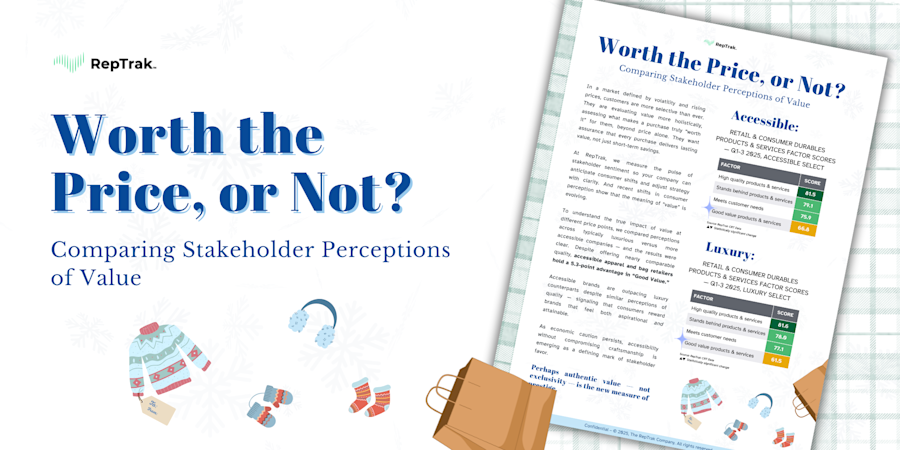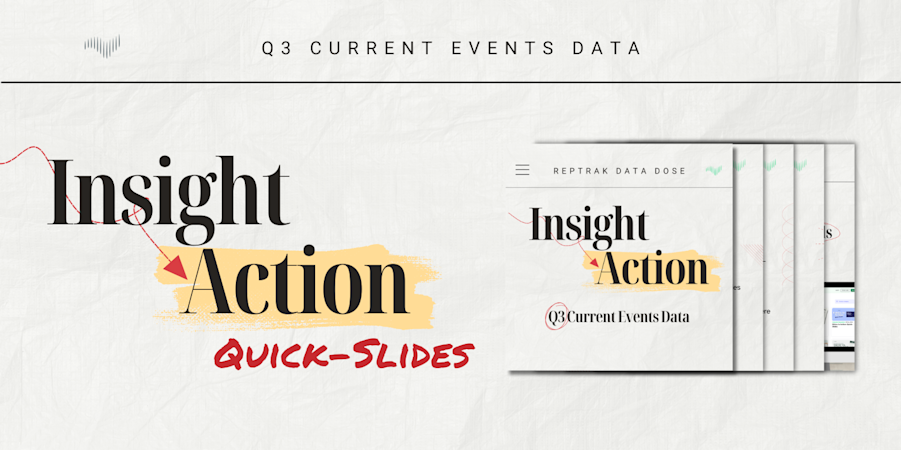Bank on Responsible Investing Affecting Your Company’s Reputation in 2020
Blog Post18 Feb, 2020
Investors today (individual and institutional ones) have more information at their fingertips than ever before, so they’re able to pay closer attention to the social and environmental decisions that companies make, and then weigh the consequences of those actions before they invest their money.
This focus on “responsible investment” is an important concern that’s top of mind at companies around the world, and, appropriately, it’s one of the top priorities on our list of Global Trends for reputation leaders in 2020.
Responsible investing means weighing financial, ethical, and other concerns in making investment decisions, and avoiding the risks of being associated with “unethical businesses.” Among those risks are child labor practices, human rights abuses, negative environmental impact, poor governance, and a lack of gender equality.
Environmental, Social, and Governance—or ESG, as it is more commonly called—is increasingly being used to make investment decisions and to evaluate future growth opportunities. This is how we view ESG within the RepTrak model:
Environmental refers to a company’s support of good causes, positive influence on society, and attempts to protect the environment
Social refers to how the company treats its employees, whether it rewards employees fairly and offers equal opportunities, and whether it meets customer needs and shows prospects for growth
Governance refers to whether the business operates fairly and transparently, behaves ethically, is well organized, and maintains strong data privacy and security
The growth of such considerations in recent years has been steep. According to a report by Callan, 62% of funds that utilized ESG criteria began doing so just in the past five years. Today, more than 80% of mainstream investors now consider ESG information when making investment decisions, according to a 2019 Oxford University study.
At the beginning of 2018, $11.6 trillion of all professionally managed assets (which translates to one $1 of every $4 invested in the United States) were under ESG investment strategies—a sharp increase from 2010, when the amount was close to just $3 trillion overall.
Globally, there are now $22.89 trillion of assets being professionally managed under responsible investment strategies. “This number is so large it needs context—it exceeds the GDP of the entire U.S. economy,” Tim Mohin, Chief Executive of the Global Reporting Index (GRI), told Forbes in 2019.
And with influencers like BlackRock CEO Larry Fink declaring that “climate risk is investment risk,” the trend shows no sign of slowing down. In fact, BlackRock announced in mid-February the investment of $600 million by Ilmarinen, Finland’s largest pension insurance company, into a new ESG fund, and the expansion of BlackRock’s iShares ESG lineup. The two announcements further illustrated the increased popularity of ESG investing.
When it comes to impacting a business’ reputation, the three aspects of ESG are balanced, with each weighted at about a third in terms of priority and impact on corporate reputation, according to the 2019 Global RepTrak study. More importantly, ESG has a strong positive correlation when it comes to business support in terms of investment, purchase intent, recommendation, and trust.
Globally, the Hospitality industry leads in overall ESG performance, especially on the measures of Social- and Governance-related criteria. But regarding Environmental considerations, there is an opportunity for the Hospitality industry to further improve, as it is yet to achieve a strong rating in the RepTrak study.
An increasing number of corporate leaders understand that businesses have a key role to play in tackling urgent challenges such as climate change. Pair this with a deepening understanding of the associated risk of climate change on overall business performance, and it’s not hard to see why the financial service industries have responded by creating new modes and tools of investment.
With investors, portfolio managers, and sell-side analysts starting to engage corporate executives on ESG issues, it appears that 2020 is the year these concerns will be mainstream. If your company isn’t responding, that could have a significant effect on your reputation. DOWNLOAD THE FULL 2020 GLOBAL TRENDS REPORT.
Ana Angelovska Director, Strategic Initiatives The RepTrak Company [email protected]






